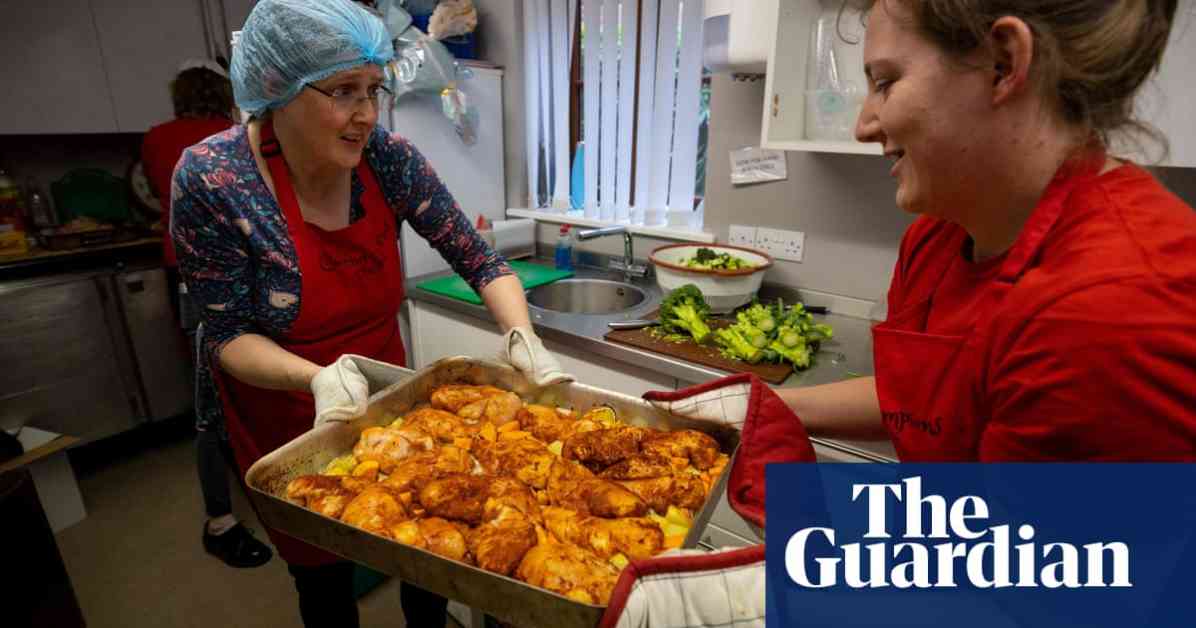Rising Concern: 500,000 Children at Risk of Holiday Hunger Without £1bn Crisis Fund
More than half a million children in the UK are facing the grim reality of going hungry during school holiday periods if the government fails to renew a crucial £1bn local welfare crisis fund. Charities have raised alarm bells about the potential consequences of not extending this vital funding, which is set to end in just six weeks.
Last year, English councils allocated a total of £370 million from their household support fund (HSF) towards providing holiday food vouchers for pupils on free school meals (FSM). However, more than a quarter of authorities have expressed concerns that this support may disappear if the fund is not continued. This impending crisis has prompted charities to urge the government to take immediate action to prevent a catastrophic situation where thousands of families are left without essential support.
The discontinuation of the HSF could have far-reaching effects beyond just holiday hunger. It could potentially dismantle an already fragile crisis safety net that provides vital assistance to families at risk of destitution. This safety net includes provisions such as cash aid, food parcels, fuel vouchers, clothing, and essential household items like beds and cookers.
A recent report by the charity End Furniture Poverty paints a grim picture of what could unfold if the HSF is allowed to expire without a viable long-term solution in place. The report highlights the dire consequences of increased poverty, deprivation, and malnutrition that would be exacerbated by the lack of support. Additionally, the strain on public services would skyrocket, as the need for emergency assistance would surge in the absence of the HSF.
Local Crisis Support in Jeopardy
The report reveals that England’s local crisis support system is not only fragmented but in many areas, virtually non-existent. If the HSF is discontinued, nearly a third of English local authority areas covering 18 million people, including major cities like Birmingham, Bradford, and Westminster, would lose access to council-run local crisis support. This would leave vulnerable families in these areas without a safety net to fall back on in times of need.
Furthermore, the removal of the HSF would not only impact families directly but also have a ripple effect on local food banks. Many food banks have become reliant on HSF cash grants to cope with the surge in demand for charitable food assistance, exacerbated by the ongoing challenges posed by the Covid-19 pandemic and the rising cost of living.
The government, which recently outlined its plans to address child poverty in the long term, is under pressure to make a decision regarding the future of the HSF. With funding for the scheme set to run out on 30 September, just a month before the autumn statement, the urgency of the situation cannot be overstated. Chancellor Rachel Reeves has identified the £500 million HSF budget as one of the unfunded commitments inherited from the previous government, signaling a need for careful consideration and strategic planning moving forward.
Implications for Child Poverty and Education
Campaigners are sounding the alarm about the potential consequences of allowing school holiday food vouchers to disappear in many areas of England. The previous government faced backlash over attempts to scrap holiday free school meals support, a move that was met with widespread public outcry and ultimately reversed.
The End Furniture Poverty report sheds light on the critical role that the HSF plays in addressing holiday hunger. Last year, 44% of the entire HSF budget was allocated towards funding holiday food vouchers, making it the largest single expenditure within the fund. However, with 22 councils already indicating their intention to discontinue the vouchers if the HSF is not renewed, the future looks uncertain for the 561,000 children who rely on FSM vouchers for essential meals.
The report underscores the importance of providing holiday vouchers as a means of preventing children from going hungry and ensuring that they have the necessary nutrition to thrive. Without this support, children’s education opportunities could be compromised, hindering their ability to reach their full potential and breaking the cycle of poverty that plagues many families.
Urgent Call for Action
As the deadline for the HSF looms closer, campaigners are urging the government to take immediate action to extend the funding for at least six months. Claire Donovan, the head of policy at End Furniture Poverty, emphasizes the urgent need for continued support while a comprehensive review of local authority crisis support is conducted. While the HSF may be a temporary solution, it is a vital lifeline for families in need of assistance during times of crisis.
The current government has expressed its commitment to addressing poverty and supporting individuals in finding stable employment. However, the specifics of how the household support fund will be allocated moving forward remain unclear. More details are expected to be released in the coming months, but the urgency of the situation demands swift action to prevent a humanitarian crisis from unfolding.
In conclusion, the looming expiration of the £1bn local welfare crisis fund poses a significant threat to the well-being of vulnerable families and children across the UK. The government must prioritize the extension of the HSF to prevent a surge in poverty, deprivation, and hunger in the coming months. Failure to act swiftly could have devastating consequences for thousands of families already struggling to make ends meet. It is crucial that adequate support is provided to ensure that no child goes hungry during school holidays and that families receive the assistance they need to weather the ongoing challenges posed by the current economic climate.












